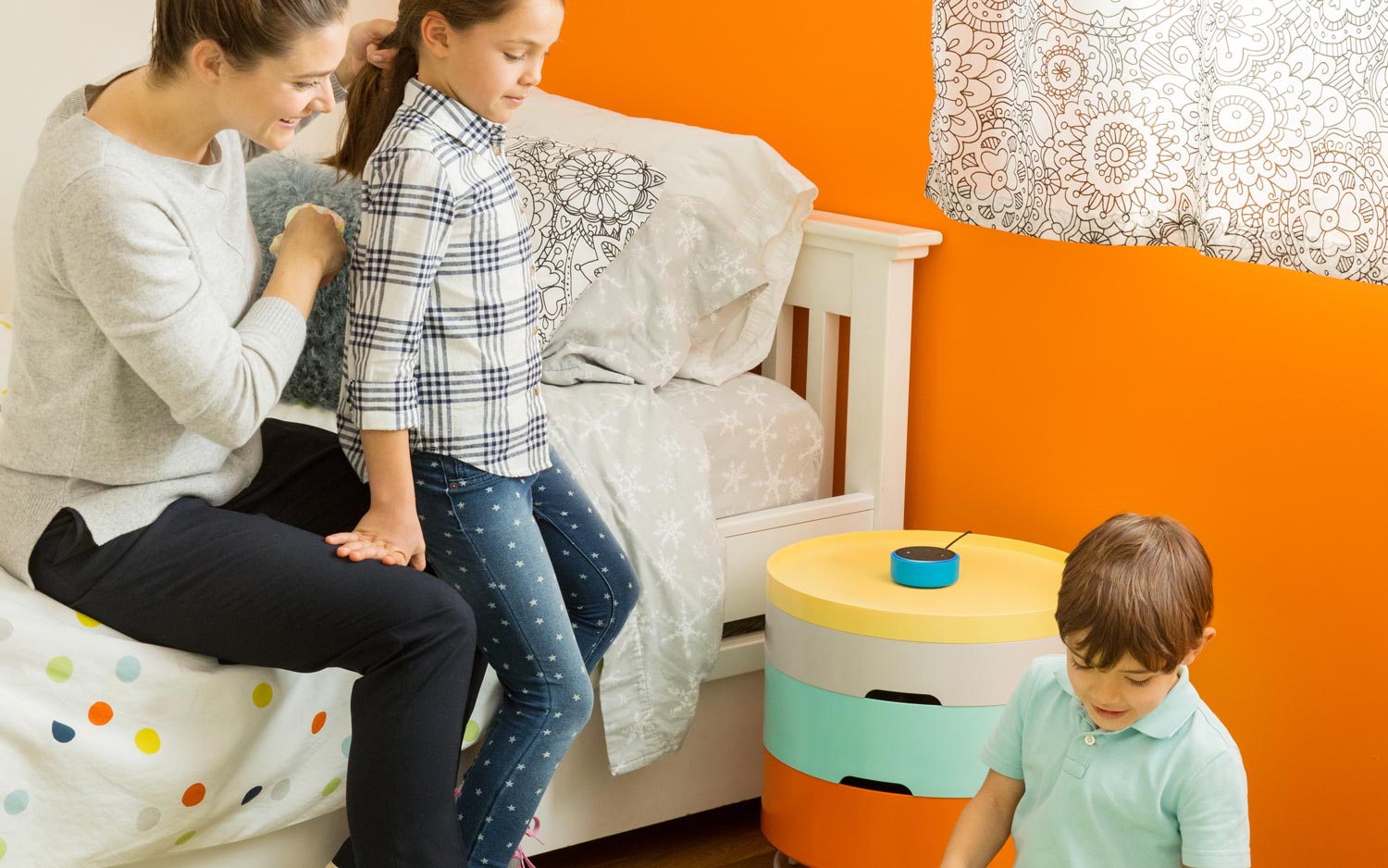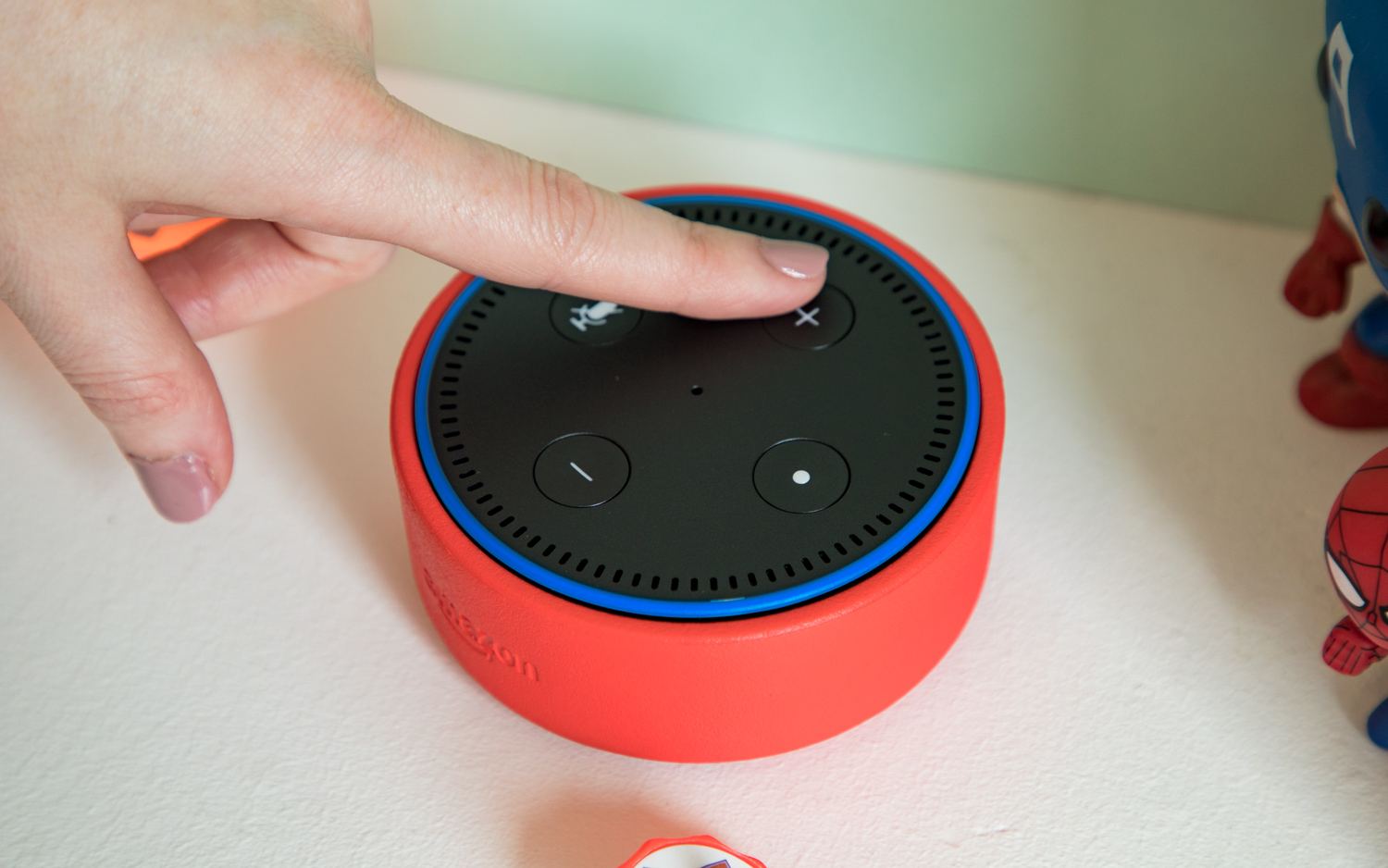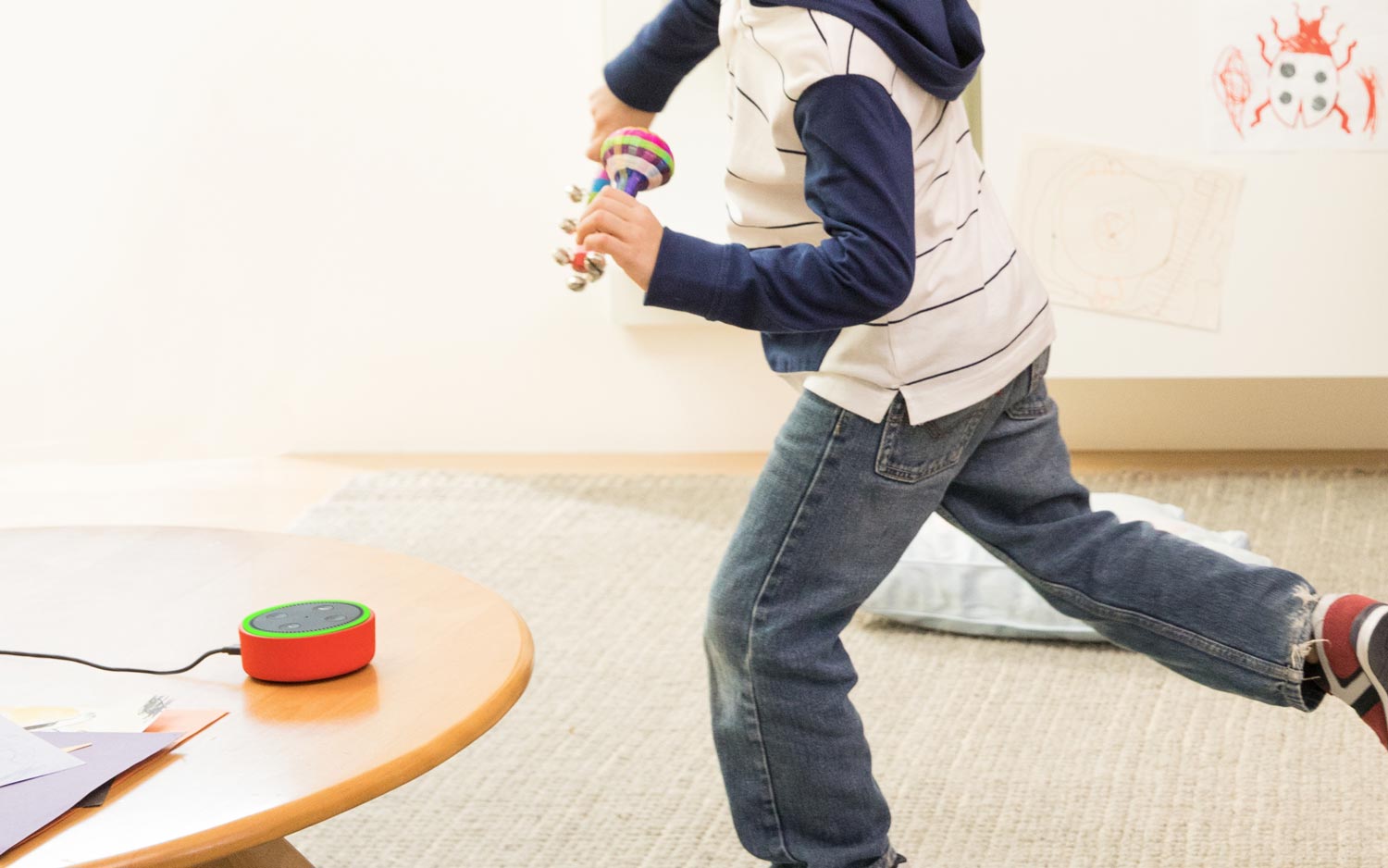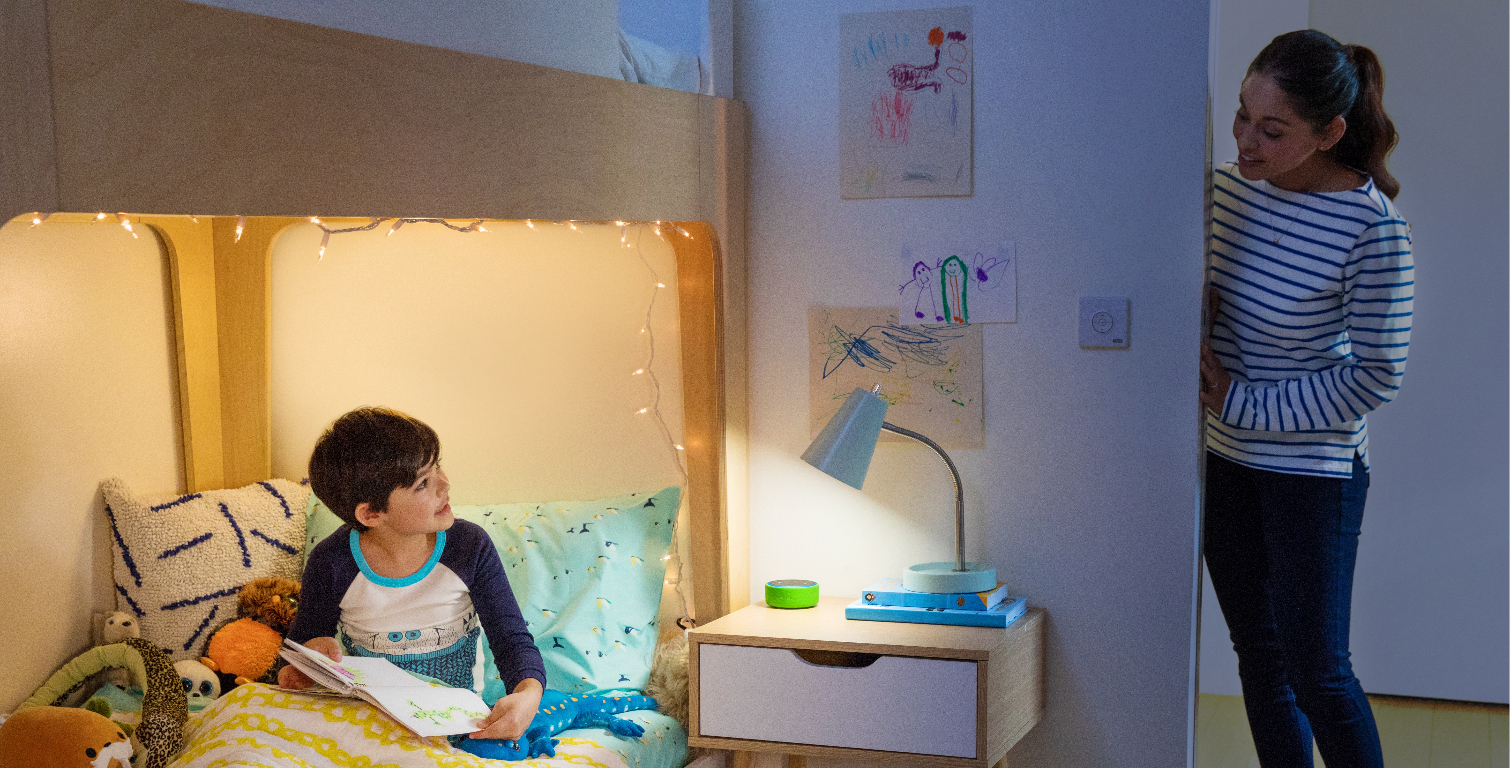Should You Buy Your Child an Echo or a Google Home?
Kids love talking to digital assistants. But is it a good idea? Here's what the experts say.
Here at Tom’s Guide our expert editors are committed to bringing you the best news, reviews and guides to help you stay informed and ahead of the curve!
You are now subscribed
Your newsletter sign-up was successful
Want to add more newsletters?

Daily (Mon-Sun)
Tom's Guide Daily
Sign up to get the latest updates on all of your favorite content! From cutting-edge tech news and the hottest streaming buzz to unbeatable deals on the best products and in-depth reviews, we’ve got you covered.

Weekly on Thursday
Tom's AI Guide
Be AI savvy with your weekly newsletter summing up all the biggest AI news you need to know. Plus, analysis from our AI editor and tips on how to use the latest AI tools!

Weekly on Friday
Tom's iGuide
Unlock the vast world of Apple news straight to your inbox. With coverage on everything from exciting product launches to essential software updates, this is your go-to source for the latest updates on all the best Apple content.

Weekly on Monday
Tom's Streaming Guide
Our weekly newsletter is expertly crafted to immerse you in the world of streaming. Stay updated on the latest releases and our top recommendations across your favorite streaming platforms.
Join the club
Get full access to premium articles, exclusive features and a growing list of member rewards.
It's an exciting time to be a kid. From tablets to smartphones to your refrigerator, everything is getting smarter, with more fun features for kids to take advantage of. And with the recent release of the Echo Dot Kids Edition, your children could have their first opportunity to talk to, and play with, their very own voice assistant.

The $79 Kids Edition comes in a protective case to shield against bumps and drops, and is fully loaded with kid-friendly audiobooks, games and music. Alexa itself is seemingly harmless, as it tells jokes, provides advice and answers your children's incessant questions in a friendly and patient way.
However, there are concerns about giving an always-listening device to your child: What can or will it record, and can your kid use it for purposes other than those you intended? The same thing goes for the cute Google Home Mini.
We asked tech and security experts about the pros and cons of buying a smart speaker for your kid, whether it's kid-specific or the real deal. Here's what we found.
Reasons for an Echo or a Google Home
It's just plain fun. Some of the highest-rated Alexa games are aimed at kids, such as the Jeopardy! skill and the popular choose-your-own-adventure games Magic Door and Yes Sire. Other skills bring fun to mundane activities in a way that might be hard for parents to replicate. Bye Bye Cavities, for example, turns your kid's toothbrush routine into a quest to defeat the villainous "Cavity Family" while reinforcing proper brushing technique.

In a recent Google-commissioned study from Kelton Research, 35 percent of Google Home owners said the device made it easier to entertain their kids. Amazon says that tens of millions of households use Alexa today, and that customers tend to enjoy using Alexa with their families.
"The idea that you can talk to a computer and have it respond to you is exciting for kids," said Ben Arnold, senior director of innovation and trends at the Consumer Technology Association. Arnold says that he would "definitely be interested” in buying an Echo for his children. "Kids are enamored towards talking to Google Assistant or Alexa. They like that experience."
Get instant access to breaking news, the hottest reviews, great deals and helpful tips.
It gets them ahead of the curve. "Voice is one of the most exciting things that's happening in technology," Arnold said. The research backs him up. Voice assistants are one of the fastest-growing adopted technologies, with Echo and Google Home ownership having tripled in the past year, according to a recent CTA study.
MORE: Echo Dot Kids Edition Review: The Best Alexa for Kids
In other words, by the time your kid's grown up, smart-home technology will probably be more ubiquitous than we could have imagined. The sooner your kids are comfortable listening to and talking to voice assistants — and the sooner they understand the security risks they bring — the better equipped they may be for the future.
It means less screen time. Smartphone addiction is a real problem among kids and teens: A Common Sense Media poll showed that 50 percent of teenagers believe they're addicted to their phone, while 59 percent of parents reported that their teens were addicted, and 66 percent reported that their teens spend too much time on mobile devices.
Alexa can offer your kids an interactive, screen-less alternative to mobile games and social media, to help prevent them from becoming too dependent. While many parents criticize their teens for using their phones in lieu of face-to-face interactions, Alexa encourages conversational skills. With FreeTime, you can even set positive reinforcement for using the word "please."
"Kids spend a lot of time on screens," Arnold said. But with Alexa, "they're able to interact with technology away from the screen, using audio or their audio abilities."
Why You Should Skip
Security and privacy concerns. When it comes to smart-home technology, convenience often comes with security risks. Geoffrey Schorz, national training manager at home-security company Swann Communications, was candid about Echo devices: "I don't want them in my kids' rooms."
There are few instances of an Alexa device actually being hacked, and Amazon says that the Echo Dot Kids Edition is compliant with the Children's Online Privacy Protection Act. But new vulnerabilities spring up all the time.
In April, security company Checkmarx was able to create an Alexa skill that would allow a hacker to record a user even after their interaction with Alexa had ended, and send that recording to the hacker. Back in November, Armis found that Echo and Google Home devices were vulnerable to the nefarious Bluetooth-enabled exploit BlueBorne, which could allow hackers to remotely access the devices without the owners' knowledge.

Amazon quickly patched both of these vulnerabilities, but as Echo devices get more popular, they're sure to get more vulnerable, said Michael Parker, Armis' chief marketing officer. "Remember when we got laptops and put them on the internet — boom, all of a sudden you had all these viruses?" he said. Smart devices are, he said, "the new attack vector."
But even when there's no hacker present, misinterpretation on Alexa's part can lead to bad news. In late May, an Echo device accidentally interpreted background conversation as direct commands, and ended up recording a user's private conversation and sending it to another user in her address book. As an adult, these are risks you can internalize — but the last thing you want is Alexa sending a recording of your child to a stranger.
It's another distraction. Schorz cautions parents against providing their kids with a device that could potentially distract them from homework, chores and bedtime. Given that all a kid needs to do is say "Alexa" to start a game or activity, the temptation could be hard for some kids to resist, even if they've been instructed not to use it.
MORE: Best Alexa Skills for Kids
Fran Walfish, family and relationship psychotherapist and author of The Self Aware Parent, cautions parents not to let their kids become dependent on Alexa for homework help, setting reminders, calling Ubers, or other conveniences. The use of Alexa, she believes "enables dependency, rather than fostering autonomy by your kid to do things for himself."
And if your older kids have an Echo Dot with access to your Amazon account, they could be tempted to make purchases, or download inappropriate content. "I've seen employees talk to Alexa and order things they shouldn't," Parker said.
What to do if you decide to buy an Echo or Google Home for your child
If you decide to take the leap and buy your kid an Echo or Google Home, make sure you're aware of how to keep it secure. If you're worried about your kid's security, consider instructing them to mute their device at night, or even unplug it. Keep abreast of the latest vulnerabilities, and consider limiting your kid's use until they're patched.

Schorz recommends setting some restrictions. "It's supervision. Pay attention to what your kids are doing.” Schorz doesn't allow his kids to access their Echo devices or other electronics without permission, and doesn't allow them in bedrooms.
If you're worried about what your kid is doing, consider setting parental controls to limit their time (Here's how to enable FreeTime on any Echo device). An Amazon spokesperson said they'd heard from a number of parents who paused their children's Echo devices during homework time to prevent distraction (and potential cheating).
And remember to keep a close eye on their interactions and purchases (and maybe turn off voice-purchasing, if they're using the adult version), to make sure they're not abusing the privilege.
Credit: Amazon
Monica Chin is a writer at The Verge, covering computers. Previously, she was a staff writer for Tom's Guide, where she wrote about everything from artificial intelligence to social media and the internet of things to. She had a particular focus on smart home, reviewing multiple devices. In her downtime, you can usually find her at poetry slams, attempting to exercise, or yelling at people on Twitter.
 Club Benefits
Club Benefits





